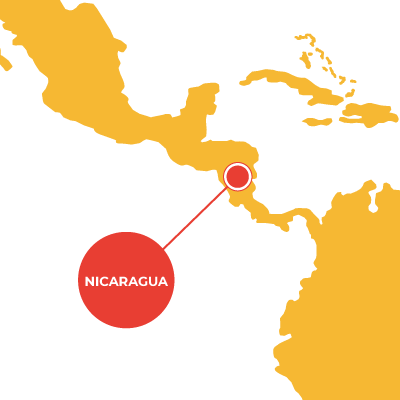
The experience of women victims of trafficking in Central America and the Dominican Republic and the action of institutions
Socioeconomic conditions, sexual abuse, the search for family reunification and domestic violence have prompted thousands of Central American and Dominican women to migrate to improve their quality of life. However, since it is increasingly common for them to migrate independently and because of their gender status, they are exposed to multiple dangers, such as human trafficking. Because little is known about the practices, dynamics and operational characteristics of this crime in this region, this publication represents an effort to address these knowledge gaps.
Migrant Children and Adolescents in Central America and Mexico
The aim of this study is to analyse the situation of migrant children and adolescents, with emphasis on unaccompanied migrants and those in situations of child labour.
This document is available in Spanish.
Regional guidelines for the preliminary identification of profiles and reference mechanisms of vulnerable migrant populations
The concern to ensure respect for the human rights of migrants - regardless of their migratory status - has been a constant in the countries that are members of the Regional Conference on Migration (CRM), evidenced in multiple resolutions and initiatives over the years. This concern has historically evolved in response to the growing complexity of migration flows in the region that brings new protection and assistance challenges.
Guiding Principles for the Elaboration of Migration Policies on Integration, Return and Reintegration of the Regional Conference on Migration
This document was prepared on the basis of the results of the Workshop "Integration, Return and Reintegration of Migrants" (September, 2013), in San José, Costa Rica by the Regional Conference on Migration. It was prepared with the technical and financial support of the International Organization for Migration. This document was approved by the Regional Conference on Migration at its 19th Vice-Ministerial Meeting, held in Managua, Nicaragua, on June 26 and 27, 2014.
This document is available in Spanish.
Trafficking in persons for labour exploitation in Central America: Nicaragua
Research on trafficking in persons, especially for the purpose of labour exploitation, is more important than ever. We are therefore pleased to make available to the national and regional authorities of Central America, as well as other social actors, exploratory studies that seek to open the way for new and more detailed research in this field.
This document is available in Spanish.
Plan to strengthen the governance of extraregional migrant flows in Mesoamerica
This document is a guide to support the development of a comprehensive response plan to the current situation posed by these migratory flows for the region, based on an approach focused on the protection of life, the integrity and rights of migrants and based on the promotion of alliances among all relevant actors.
This document is available in Spanish.
Risk Factors and Care Needs for Migrant Women in Central America
The study aims to generate evidence on the vulnerabilities faced and the situation of violence affecting migrant women in Central America. It also provides recommendations for addressing the situation, as well as identifying regional actions that contribute to strengthening prevention, care and protection.
This document is available in Spanish.
Regional Guidelines for Action for the Comprehensive Protection of Children and Adolescents in the Context of Migration
This document is a non-binding guide adopted by the countries of the region in the framework of the Regional Conference on Migration. It establishes regional guidelines for the comprehensive protection of migrant children and adolescents, applying the guiding principles and protection measures, and strengthening the national efforts of the RCM Member Countries and their institutions. It also seeks to be a reference for a change in the vision and approach of migrant children and adolescents, not only in the region but worldwide.
This document is available in Spanish.
Strategy for psycho-social intervention with adolescents and youth at risk and in conflict with the law
This Psychosocial Intervention Strategy is part of the pilot project "Prevention and Reintegration of Adolescents at Risk or in Conflict with the Law in the Northern Caribbean Coast Region of Nicaragua. RACCN". The document presents a set of practical mechanisms for social, institutional and community actors to carry out prevention and psychosocial intervention actions. At the same time, it proposes improving inter-institutional and community coordination through a Psychosocial Intervention Route.
This document is available in Spanish.
Pagination
- Page 1
- Next page
